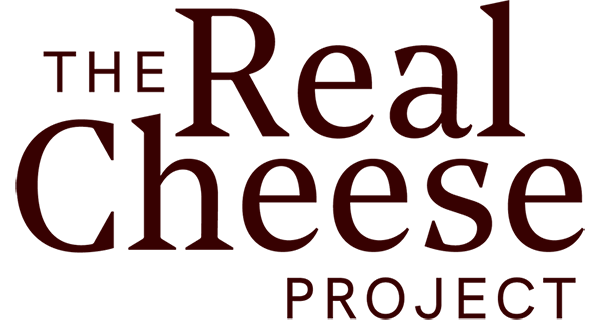Choosing the slow path
The Real Cheese Project interviews Brett Sacks from Slow Grown Farm.
On a patch of earth near the village of Graffham in West Sussex, cheese is being made in harmony with the land, its soil and the animals who graze upon it.
Katie Forman and Brett Sacks founded Slow Grown Farm in 2021, following careers in prop making and finance respectively, and with a clean slate to work with, they’ve designed everything to do better by the environment, better by their animals and better by cheese lovers. The farm is both organic and regenerative, and employs the cow-calf method with its 100% grass-fed herd.
As ever, healthy pastures and happy animals means incredible cheese, so everyone’s a winner. We chatted with Brett, to find out more.
WHAT’S THE ETHOS BEHIND SLOW GROWN FARM?
At the heart of what we do is animal welfare and care for the environment. We believe that the best food is made in harmony with the land and its soil. From the outset, we set up our business to have a short as possible supply chain. We produce our food on the same land that we rear our livestock, and we sell our produce directly to the consumer. Being a small mixed farm, we focus on raising rare breeds which are suited to producing milk on a 100% grass fed diet – they don’t require additional feed such as grain. We’ve intentionally started small; our first year we milked four cows and last year we milked eight. To mimic their natural cycle we milk our cows seasonally from May to December. This gives them time to rest over the winter, ready to calve in the spring.
WHAT INSPIRED YOU TO LAUNCH THE PROJECT?
A love for the outdoors and working with animals coupled with a love for high quality and nutrient dense food. After working for a year herding cows and making cheese at Bobolink Dairy in the USA, we were inspired to start a farm with a similar vision.
HOW IS YOUR GRASS-FED APPROACH DIFFERENT TO OTHER DAIRY FARMS?
By having a 100% grass-fed diet, we sacrifice an increase to our milk yields in favour of high quality, special milk. We get around four litres of milk per cow per day vs a conventional dairy which would get 40+ litres a day. Our cows’ diet is forage based – they have access to pastures, wildflowers, hedgerows and woodland. This diverse diet, varying with the seasons, results in an everchanging daily harvest of milk unique to our context which lends itself to unique cheese. Due to this, you may never get the exact same cheese twice!
TELL US MORE ABOUT THE COW-CALF METHOD
All the calves remain with their mums, in the herd, for at least four months. This is important as it places less stress on the cows and calves – stress makes cattle much more susceptible to illness. Our calves have four months of nursing from their mums which provides them the healthiest start to life. Lastly, it’s crucial for our calves to “learn how to be a cow” by growing up in a herd.
WHERE DO YOU STAND ON THE IMPORTANCE OF ORGANIC VS REGENERATIVE FARMING?
For us, it doesn’t have to be one or the other. Organic farms are regulated by a certification body which can go a long way in ensuring the welfare of animals and protection of the environment. Regenerative farming is not as well defined but lots of the management principles and techniques coming out of the movement are at the forefront of soil building and carbon sequestration.
HOW IMPORTANT IS RAW MILK TO YOUR CHEESEMAKING?
Cheese is milk! So, as a cheesemaker, the quality and character of our milk is non-negotiable. By keeping our milk raw, we preserve micro-flora, proteins and fats that make our milk unique.
WHAT ELSE GOES ON AT SLOW GROWN FARM?
We rear Saddleback pigs in 10 acres of South Downs woodland. Our pigs’ diet is supplemented by the whey from our cheesemaking and we process our pork into handmade charcuterie. From May to November we also host different events and tours on the farm.
WHERE CAN WE BUY YOUR CHEESE?
Online at SlowGrownFarm.co.uk as well as farmers’ markets and pop-up shops, all of which you can find details about on our website.



